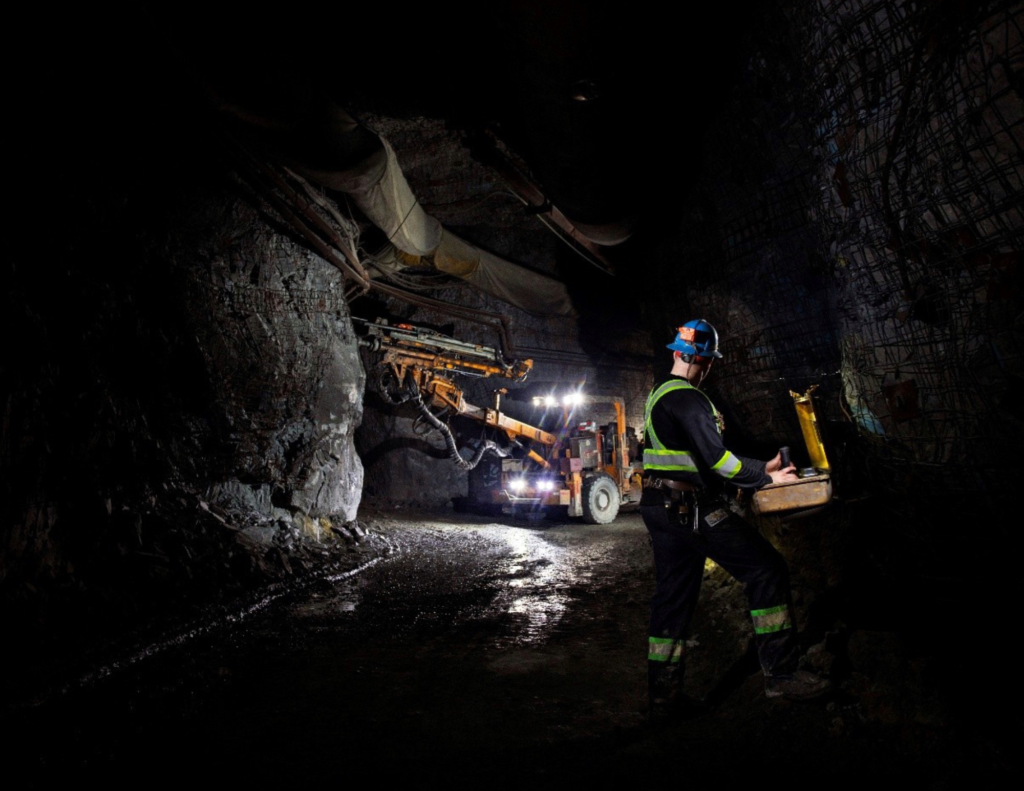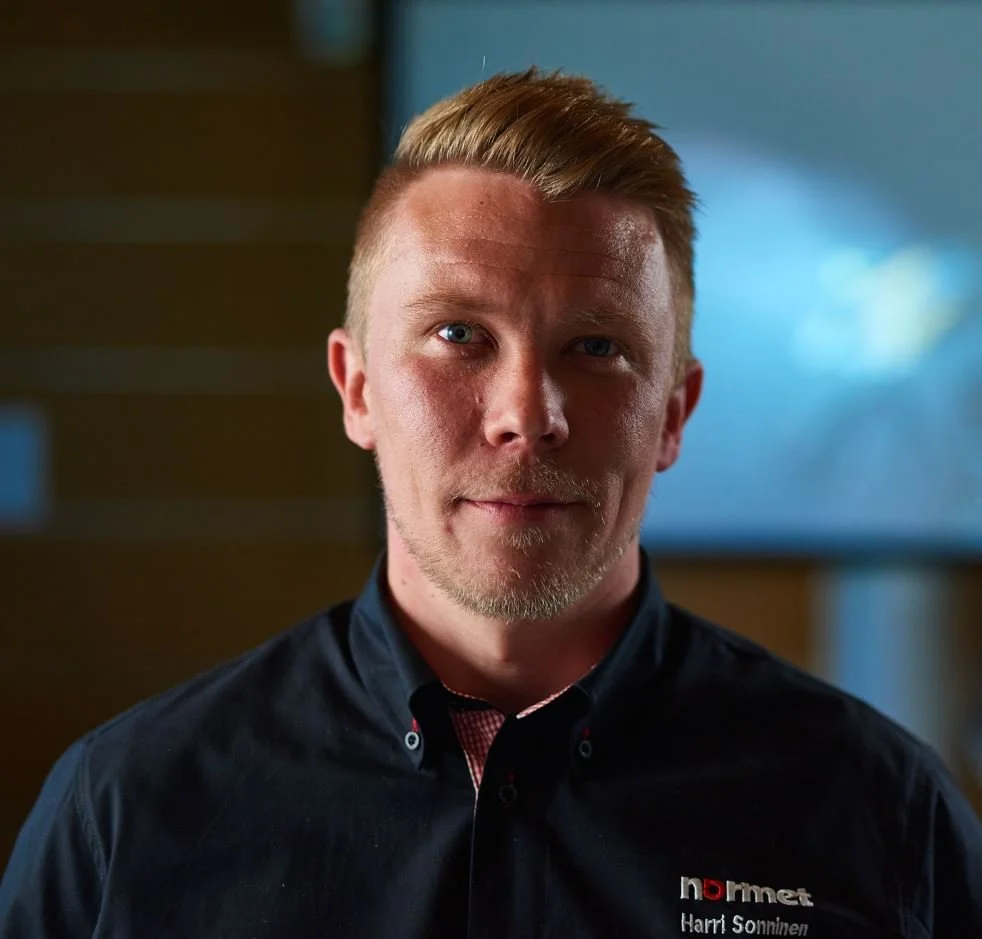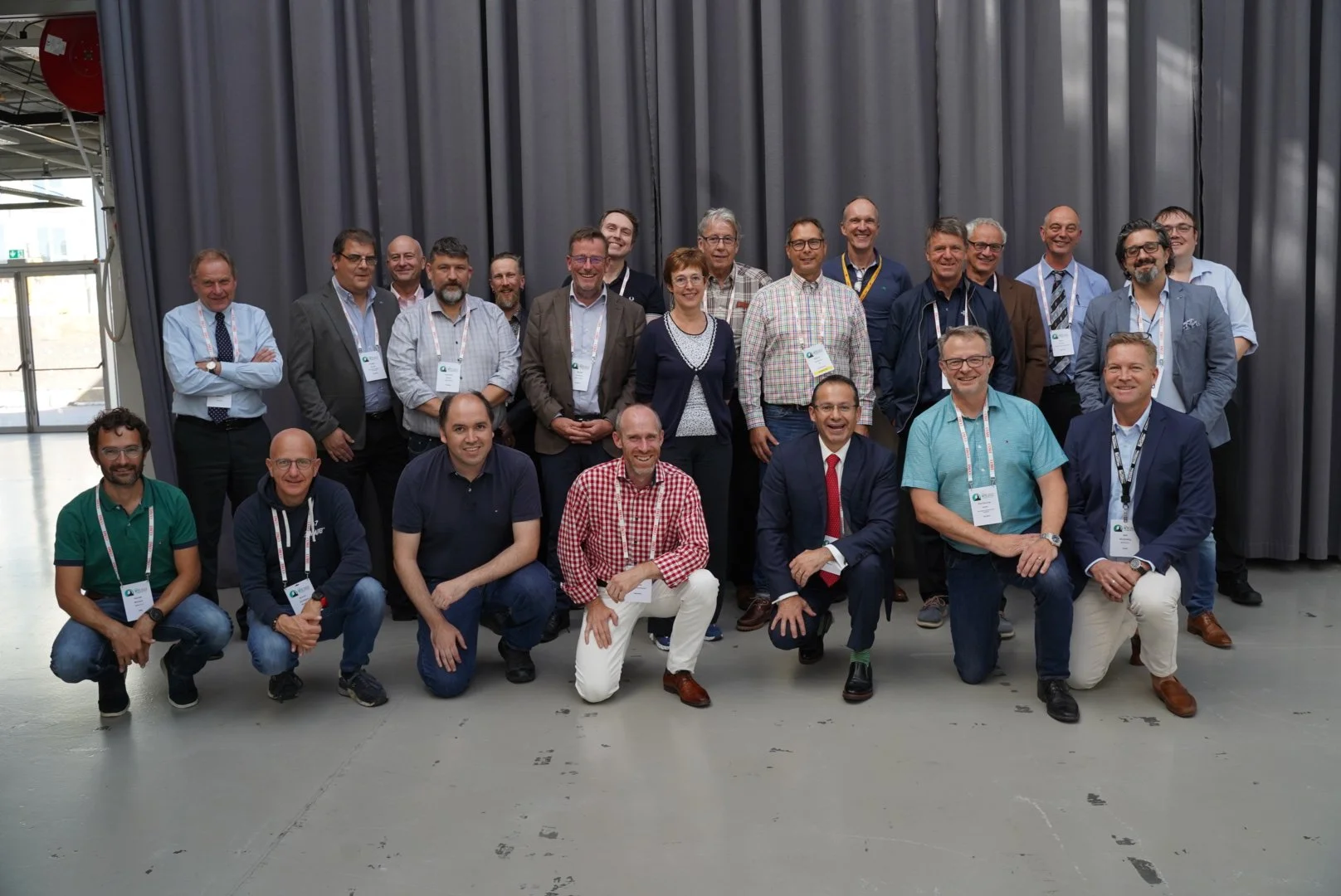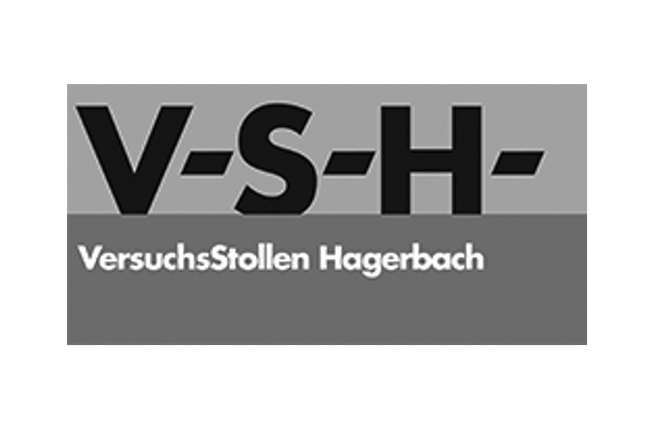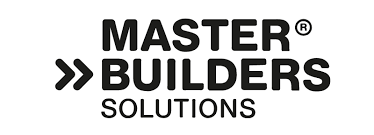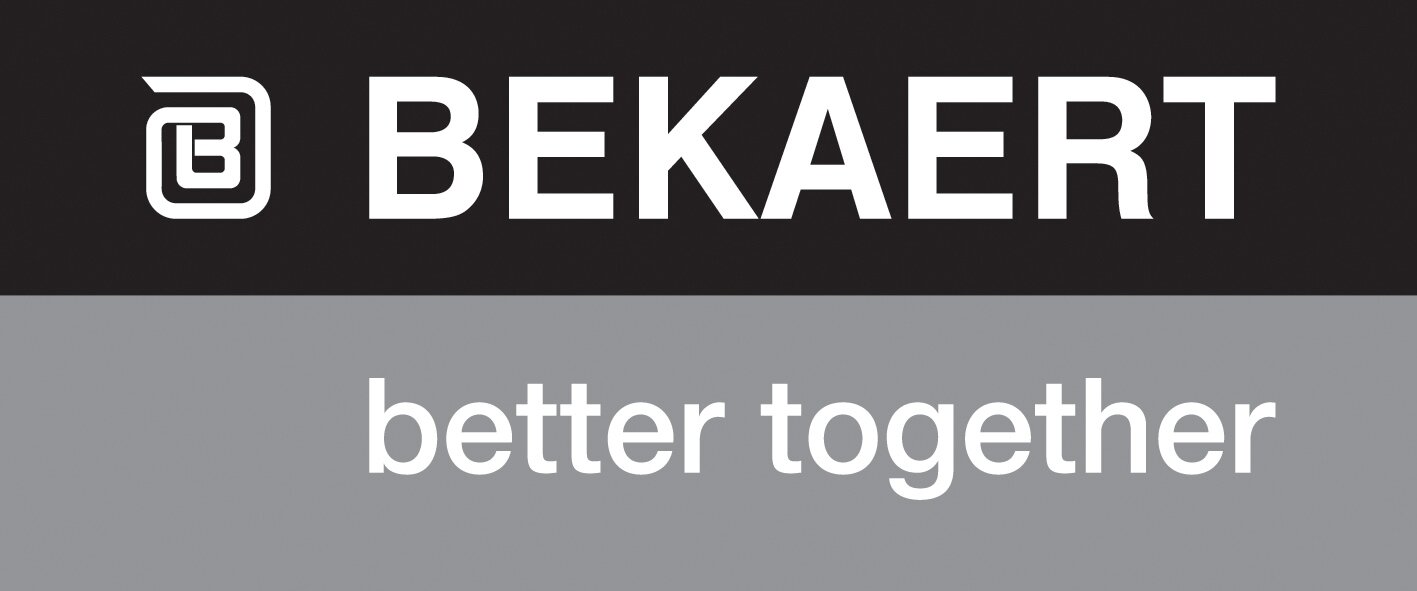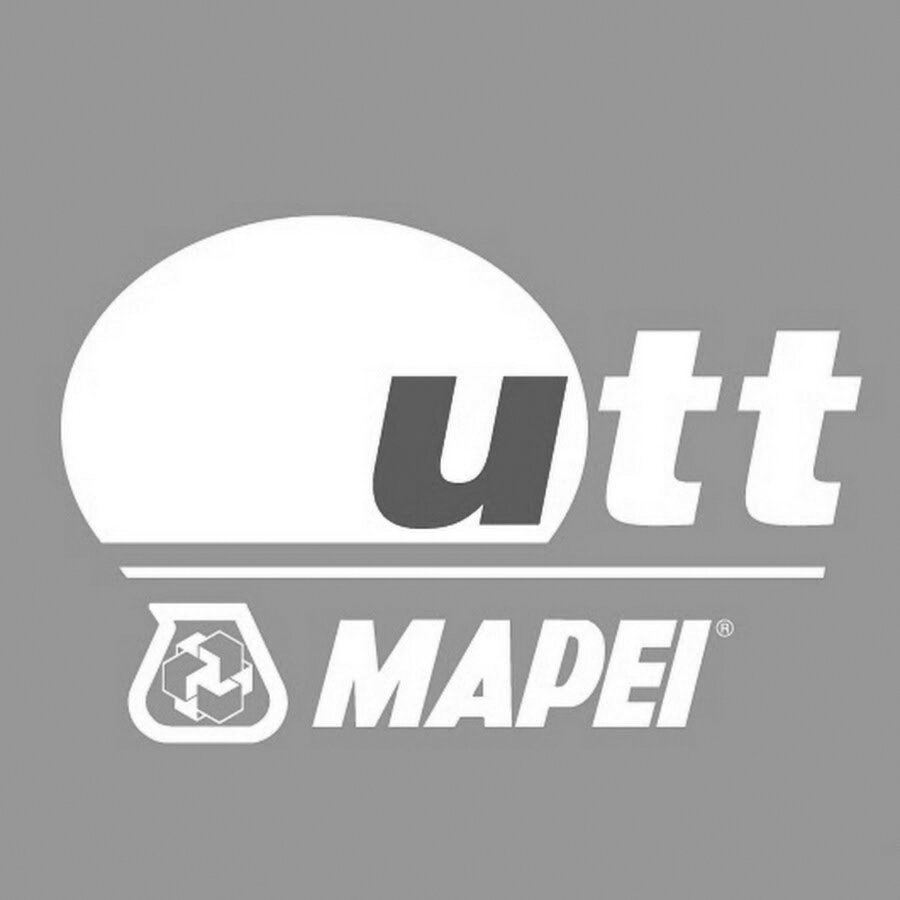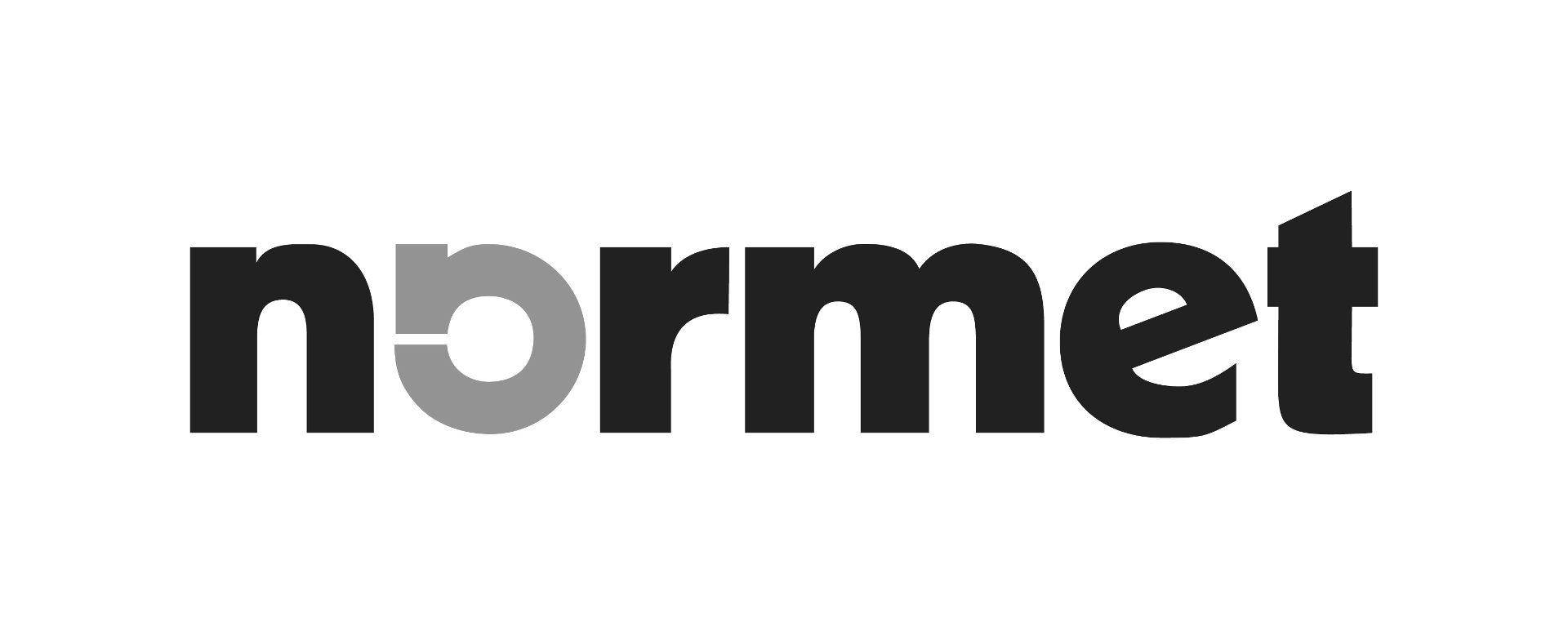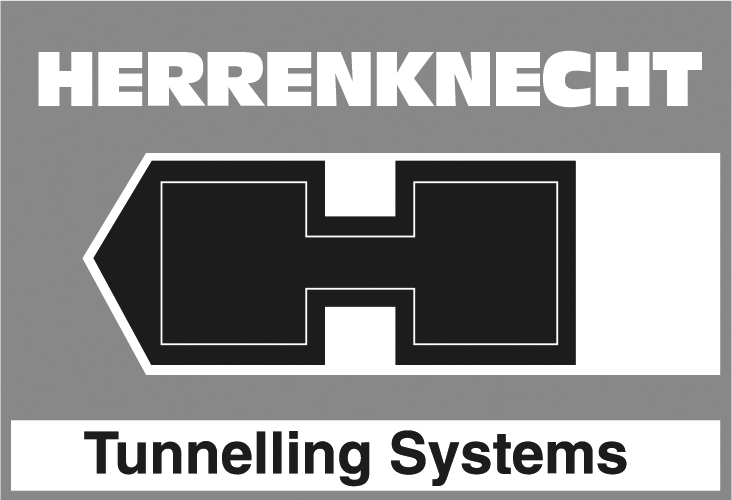EFNARC Welcomes New Members in 2025
EFNARC is pleased to announce the addition of several new companies to its membership in 2025, strengthening our network of organizations dedicated to advancing excellence and safety in underground construction.
BarChip
Specialists in high-performance synthetic fibre reinforcement systems, BarChip is known for its innovative approach to concrete durability and crack control. The company’s solutions are used worldwide in tunnelling, mining, and infrastructure.
BarChip is actively represented by by Des Vlietstra, Global Technical Services Manager at BarChip Australia, in the Focus Group on Hand-Sprayed Concrete and the Focus Group on Fibres for Sprayed Concrete contributing to discussions on fibre performance and specifications.
MacLean Engineering
The Canadian-based global leader in underground mining equipment brings decades of expertise in electrification, automation, and engineered solutions that improve safety and productivity in mining environments.
MacLean Engineering takes a leading role in EFNARC’s Focus Group on Mining, guided by Jonathan Lavallee, Product Manager and EFNARC Nozzle Operator Examiner. The group is shaping new training and guidelines that reflect the realities and challenges of today’s underground mining operations.
MC-Bauchemie
With a long-standing reputation in construction chemicals, MC-Bauchemie delivers proven technologies for sprayed concrete and tunnel waterproofing. The company’s commitment to innovation aligns strongly with EFNARC’s goals.
Opitz & Matuschak (OM)
Based in Dorsten, Germany, OM is a highly specialized manufacturer of high-performance spray nozzles for shotcrete applications. Their focus on practical design, dust reduction, and precision supports efficient and safe tunnelling work across Europe.
OM is represented in the Focus Group on Hand-Sprayed Concrete by Gordon Opitz, supporting EFNARC’s efforts to develop best practices and training for manual shotcrete application.
Our new members are actively engaging in EFNARC’s focus groups, technical initiatives, and industry events. Their participation will help shape the future of standards, training, and best practices in sprayed concrete, mining, and underground construction.
If your organization is interested in becoming part of EFNARC, please visit our membership page or get in touch with us directly.
Hagerbach Test Gallery (VSH) Recognized as ‘Research Infrastructure of National Importance’
The Swiss government has officially recognized the Hagerbach Test Gallery (VSH) as a research infrastructure of national importance. This recognition is a testament to over 50 years of innovation and contribution to underground research. The funding associated with this designation will support the development of new research infrastructure, benefitting partners such as EFNARC.
Originally established as a test gallery, VSH has evolved into a comprehensive research facility, laying critical foundations for EFNARC's work in setting industry standards.
History and Importance of Hagerbach Test Gallery for EFNARC
Researchers and developers from all over the world use Hagerbach’s research facility to conduct cutting-edge research, training, and large-scale testing across 25,000 m² of tunnels, laboratories, caverns, and test fields. VSH has hosted the EFNARC Nozzle Operator Examiner Training since its inception, providing an optimal environment for technical training and certification.
Additionally, the EFNARC office has been located at VSH in Flums for the past three years, reinforcing the strong relationship between the two organizations. “The collaboration between VSH and EFNARC has played a pivotal role in developing and refining industry standards,” says Michael Kompatscher, Managing Director of VSH.
The training and research facility in Hagerbach serves as the foundation for the Nozzle Operator Examiner Training, setting global standards in a well-suited environment. The first TBM pilot training also recently took place at VSH, further demonstrating its role in advancing tunneling technologies. The course aims to equip TBM operators with the necessary knowledge and skills to perform their tasks in a safe, high-quality, and cost-effective manner.
Michael Kompatscher has been the Managing Director of VSH since 2017 and attended the first EFNARC meeting in the same year. He is also involved with the International Tunnelling Association Committee for Education and Training (ITACET), where he leads Activity Group 2 on industrial training for blue-collar workers and drives the ITA global training initiative. Additionally, he serves as the EFNARC Secretary, an Executive Committee Member, and the leader of Focus Group 5, which develops testing methodologies and standards for fire protection systems in tunnel construction.
The Significance of National Recognition for VSH
Michael emphasizes that the new recognition underscores VSH’s role beyond its traditional industrial focus, highlighting its increasing significance in scientific research. "This recognition positions VSH in a new light." While we have always worked closely with the industry, we are now equally engaged in high-level scientific research, which requires meeting entirely different standards," he explains. This shift integrates VSH into an ecosystem that includes ETH Zurich and EMPA, fostering breakthroughs at the intersection of research and industry.
Michael highlights that the federal contributions will help cover part of the running costs and investments in VSH’s research infrastructure. "These contributions are beneficial for the researchers at the center as well as for partners from industry and universities who carry out their research activities here at the technology transfer interface," he explains.
Furthermore, he considers the recognition a significant image boost: "As a research environment recognized by the federal government, we are generally more attractive for researchers who want to develop their research topics in the long term." He expects the recognition to attract further research projects, facilitate investment, and strengthen VSH’s position as The underground Future Lab.
Planned Investments in Shotcrete Research and Training
The funding associated with the national recognition allows for critical investments in new and replacement research infrastructure, creating further opportunities for research into advanced techniques such as autonomous robotic sprayed concrete applications.
This project aligns with European Horizon initiatives, making VSH a prime location for innovation in underground construction. "We are driving forward the development of sensor and measurement technologies related to shotcrete rebound, pulsation-free spraying, fiber technology, durability monitoring, and structural health assessment. This will allow us to push the boundaries of efficiency, sustainability, and quality control in tunneling," Michael notes.
Michael also emphasizes EFNARC’s role extends beyond sprayed concrete certification, as it is a broader industry association dedicated to setting new standards. "EFNARC is not just about shotcrete—our mission is to drive innovation across the tunneling sector, addressing key areas like sustainability, digitalization, and automation," he states.
The use of simulation technology in personnel certification further highlights VSH’s and EFNARC’s commitment to providing state-of-the-art training and research environments.
The Importance of Partnerships for VSH
EFNARC and its members have played a crucial role in VSH’s success, shaping the organization into what it is today. Long-standing partnerships have fostered close collaboration with employees and industry leaders, driving innovation and progress in underground construction research and training.
"Strong partnerships are the backbone of our success. Working hand-in-hand with EFNARC and our industry partners has enabled us to create meaningful advancements that benefit the entire tunneling community," says Michael.
These partnerships remain essential as VSH continues to expand its capabilities and influence in the field.
BarChip Joins EFNARC as a Full Member, Reinforcing Their Commitment to Fibre Reinforced Shotcrete
BarChip has been the latest member to join EFNARC, further strengthening their position as a leader in fibre reinforced shotcrete (FRS). BarChip has a long-standing commitment to advancing sprayed concrete technology, improving industry standards, and supporting best practices in shotcrete construction. For three decades, BarChip has pioneered the use of macro synthetic fibre reinforcement, delivering high-performance solutions across global mining and infrastructure projects.
Fibre reinforced shotcrete is at the core of what BarChip does, and for over 15 years, the company has provided EFNARC Nozzle Operator Certifications to clients and industry alike. Becoming a full EFNARC member is the next step in BarChip’s ongoing mission to drive innovation and enhance quality in the industry.
Des V., a certified Nozzle Operator Examiner, represents BarChip within EFNARC. With extensive experience in sprayed concrete applications, Des has joined the Fibres for Concrete and Nozzleman Certification focus groups, and will contribute to EFNARC’s efforts in training, certification, and industry development.
“BarChip has always been committed to the advancement of fibre reinforced shotcrete, and joining EFNARC as a full member is a natural step forward,” said Des. “We look forward to working alongside industry leaders to continue developing standards, training programs, and innovative solutions that benefit the entire construction sector.”
BarChip’s full membership in EFNARC reinforces its dedication to delivering high-quality, sustainable, and efficient fibre reinforcement solutions that improve the performance of shotcrete worldwide.
Herrenknecht joins EFNARC as we expand our certification scheme to TBM pilots
Recently, Herrenknecht AG joined EFNARC as our latest corporate member. To master every small and large underground construction project, the technology leader, with 5,000 employees, develops project-specific tunnelling technologies that turn visions into reality.
With their expertise and leadership in mechanized Tunnelling, Herrenknecht's membership comes at a pivotal moment as EFNARC is about to expand its certifications to include the TBM pilot scheme.
Launch of EFNARC TBM Pilot Scheme
After 15 years of successfully certifying Nozzle Operators and Examiners, EFNARC proudly announces the launch of our TBM Pilot Scheme, supported by the International Tunnelling Association´s Working Group 14 (ITA WG14) and ITAtech AG Excavation (SubAG TBM Service Guideline). The training is based on the EFNARC nozzle operator certification scheme which has proved its effectiveness in recent years.
The EFNARC TBM Pilot Scheme both includes an Examiner Certificate (a train-the-trainer course for experts with 5+ years EPB Tunnel Bore Machine), as well as a TBM pilot course aimed at both novice and experienced TBM operators.
Learn more about the new TBM Pilot Certification Scheme
As the market leader in mechanized tunnelling, Herrenknecht brings unparalleled knowledge and innovation to our organization. Faithful to their commitment “Pioneering underground together”, Herrenknecht´s collaboration with EFNARC shows their commitment to advancing industry standards and promoting excellence in underground construction.
When Martin Herrenknecht founded Herrenknecht GmbH in 1977, no one knew the groundbreaking success that would set in motion. From the passion of a small team of technology-loving engineers, a globally operating group developed. The thirst for progress created milestones in tunnelling technology. And from the courage to prove themselves evolved masterpieces of tunnel construction. But that's nowhere near the end of the adventure: the future promises more.
Empowering Construction and Mining Professionals: CUC's Innovative Training Solutions
The Centre for Underground Construction (CUC) stands at the forefront of empowering construction and mining professionals globally. With the increasing demand for underground facilities, there's a pressing need for well-trained personnel in both practical and theoretical aspects. CUC's training center addresses this demand by offering a variety of programs tailored to equip individuals with the necessary skills and knowledge. Whether through in-person or hybrid courses, participants benefit from hands-on experiences led by industry experts, ensuring excellence in their chosen fields.
Elevating Construction Expertise
CUC is the premier destination for comprehensive construction industry education and training, focusing on practical skills development. Our commitment to excellence is reflected in tailored programs designed for individuals and companies, emphasizing both theoretical knowledge and hands-on experience.
Unique features such as in-person sessions with industry professionals and hybrid courses ensure an unparalleled educational experience. With a focus on real-world simulations and industry projects, learners benefit from invaluable insights and practical tips for career advancement.
Customized corporate training solutions and a cutting-edge curriculum prepare participants for future challenges. Choose CUC for expert training and unlock your full potential in the construction industry.
Driving Excellence in Construction Through Collaboration with EFNARC
At CUC, we align closely with EFNARC's mission to elevate industry standards. Together, we develop cutting-edge courses tailored to industry needs. Our commitment to excellence ensures our curriculum remains current, empowering professionals to excel in their careers. Through innovative education, we contribute to raising industry standards, in line with EFNARC's vision for the future.
CUC's Collaborative Achievements: Advancing Excellence in Tunneling and Construction
UC has accomplished significant milestones this year. In conjunction with EFNARC, it has spearheaded the development of two pivotal training courses:
A TBM EPB pilot training course tailored for individuals with tunnel experience seeking to broaden their skill set. This comprehensive program caters to both novice TBM pilots venturing into new territories and seasoned professionals aiming to deepen their understanding of TBM operations and underground environments.
A specialized TBM train-the-trainer course designed for seasoned experts with over 5 years of EPB Tunnel Bore Machine experience across multiple projects. This course empowers passionate industry veterans to impart their wealth of knowledge and expertise to future generations.
In collaboration with Zentrum am Berg, CUC has launched a conventional tunnel training course, complemented by a rigorous 3-day EFNARC examiner course focusing on wet, mechanized concrete spraying. Additionally, a 2-day dry shotcrete course was incorporated to provide participants with comprehensive training in modern tunnel construction techniques.
Moreover, the CUC Seminar "AI Technology and Innovations in the Chinese Tunnel Industry" served as a platform for insightful discussions, featuring guest speakers from Shanghai universities and industry leaders from SIKA Services and Amberg Group. Topics ranged from groundbreaking innovations in tunnel boring machines to cutting-edge approaches in intelligent tunnel design and sustainability initiatives pioneered by Sika.
Collaboration is at the heart of CUC's mission. By partnering with a diverse array of academic and industry stakeholders to create impactful courses and seminars, CUC fortifies the foundation of the industry, driving innovation and excellence every step of the way.
Pioneering Sustainability in Underground Training and Qualification
It is CUC’s vision to be the global leading institution for real-world and virtual training and qualification of professionals in the domain of underground space in a sustainable manner. At CUC, sustainability is our guiding principle. We are committed to minimizing our environmental impact and promoting sustainable practices within the construction industry; hence our courses emphasize sustainable techniques and materials. Where possible and available we use simulators to reduce material waste. By empowering learners with sustainable knowledge, we aim to create a greener future for the construction sector.
CUC recognizes that achieving such ambitious objectives requires collaboration with companies and organizations that espouse similar values.
Support the industry by becoming a contributor or sponsor of CUC!
Why choose CUC?
Diverse training: Find tailored courses for every need, backed by years of experience.
Personalized service: Can't find a course? Our experts craft bespoke solutions to meet your learning goals.
In-person dynamics: Learn directly from industry pros, fostering networking and real-time feedback.
Hybrid flexibility: experience online learning merged with hands-on tunnel training, ensuring deep engagement.
Practical focus: engage in simulations and projects, bridging theory and real-world application.
Expert guidance: Benefit from industry-seasoned instructors offering invaluable insights for career growth.
Corporate solutions: elevate your workforce with customized training aligned to your organization's goals.
Leading-edge content: stay ahead with continually updated curriculum reflecting industry trends and best practices.
CUC Contact Information
Michael Kompatscher
Phone: 41 81 734 14 10
E-Mail: info@cuc.academy
Normet: An All-Round Player bringing innovation and expertise to EFNARC
In the ever-evolving landscape of underground operations, Finnish company Normet leads in sprayed concrete equipment and field service. With decades of experience, Normet consistently pushes technology and training solutions in mining, tunnelling, and civil engineering projects.
In an interview with Harri Sonninen, Global Product Manager of New Technologies & Training Solutions at Normet, we gained valuable insights into the company's approach and vision, and its role in EFNARC.
Sonninen, a professional with 16 years of experience at Normet, oversees all training solutions globally and implements new technologies into customer operations, such as scanning devices and VR/XR technologies. Normet has offered technical and operator training since the production of sprayers started in the 1970s, "we've come a long way from yelling training instructions over the roar of compressors to embracing the latest VR technology in our training programs, which we greatly prefer." says Sonninen.
In recent decades, Normet evolved to offer an extensive portfolio of mining and tunnelling solutions, covering the process chain of their clients to “combine service and training agreements, along with data analytic packages and Battery electric Vehicles,” says Sonninen.
A lifelong relationship
Normet has been part of EFNARC for decades and developed nozzle operator certification schemes to meet industry standards and safety requirements worldwide, contributing to industry advancements.
Harri Sonninen
Global Product Manager of New Technologies & Training Solutions at Normet
Sonninen believes Normet’s involvement in developing a simulator training solution –with EFNARC– was a turning point. “We did have some sprayed concrete simulators more than 10 years ago, and meeting the standards around simulator training was a big question mark for us. When EFNARC started to develop this VR simulator training program, it was a valuable moment for Normet to step in and give our own expertise,” he says.
According to Sonninen, Normet's collaboration with EFNARC not only ensures they participate in defining the highest industry standards but also contributes to “the sustainable and safe development of the mining and tunnelling industry”.
VR as a game-changer
Sonninen highlighted Normet's commitment to innovation, bringing forward its virtual reality spraying training simulator, which provides diverse training environments and digital twins of its equipment and underground conditions.
"VR training allows us to leverage our global expertise, combining these forces and providing standardized training programs worldwide while offering valuable data insights and promoting sustainability and safety," said the Normet manager. “Our customers are saving money; we are making the projects more profitable by increasing people’s competence, reducing material waste, lowering operational emissions and saving operational time. They get benefits if they save emissions during our trainings too,” he added.
Chuquicamata iconic project
One of the key projects discussed was the Chuquicamata Underground copper mining project in Chile, where Normet provided concrete transportation, equipment (concrete sprayers, mixers), training (including virtual reality simulators), chemical support, and other services.
“We were part of the project from its inception, working closely with our local subsidiary to ensure a flawless execution. It is a good example of how we implement our complete solutions”
Addressing challenges faced in such projects, the Finnish highlighted the importance of environmental and location factors, due to the challenges the arid climate posed for concrete mixing and the difficulty to bring competent workforce to remote areas.
"Our global understanding combined with local expertise enables us to meet unique project requirements effectively," he explained, noting how Normet’s presence in 30 countries and 50 locations allows for truly tailored solutions, especially in entire sprayed concrete operation, operator training, and the concrete mix design expertise.
Green Innovation
When it comes to sustainability, Sonninen outlined Normet's focus on implementing new technologies, such as battery-operated equipment and VR simulators, to reduce emissions and promote sustainable practices that align with global Sustainability Development Goals (SDGs). Normet's simulators contribute to environmental conservation by saving fuel, materials, and time during training, with historical data showing a 23% improvement in operational efficiency. "By optimizing processes, improving energy efficiency, reducing the amount of cement in production by correct mix design and avoiding extra usage and waste of concrete, we strive to minimize environmental impact," Sonninen explained.
Looking ahead, Sonninen identified digitalization as a key trend shaping the industry. "Digitalization, including data handling, simulator solutions, automated spraying units, scanning and mapping technologies to monitor the sprayed concrete thickness layers and capture its profile information, is revolutionizing in underground operations, and Normet is at the forefront," he stated, and added, “we are the industry role model in sprayed concrete technology, and it is one of our main focuses”.
Normet's dedication to innovation, sustainability, and excellence continues to redefine the landscape of mining and tunnelling operations globally. With a strong commitment to meeting customer needs and embracing industry trends, Normet remains a pioneer in our field.
Member Success Story: Bekaert's Involvement in the M4-M5 Link Tunnels Project, Sydney
Bekaert, a global leader in steel wire transformation and coating technologies, aspires to be the leading partner in shaping a safer, smarter, and sustainable future. Renowned for its expertise in material science, Bekaert provides innovative steel wire solutions for the construction industry, ensuring structures meet the highest standards in speed, cost-effectiveness, safety, and durability.
Benoit De Rivaz, the Global Business Development Technical Manager for Bekaert Underground Solutions, is at the helm of this success. With a decade dedicated to Dramix in tunneling applications and a rich background in international tunneling projects, Benoit shares more on Bekaert's involvement in the M4-M5 Link Tunnels Project.
Introducing the M4-M5 Link Tunnels Project
Bekaert played a crucial role in the success of the M4-M5 Link Tunnels project in Sydney, Australia. The 7.5km-long tunnels connect the new M4 Tunnels with the M8 Tunnels, forming the 33km-long WestConnex Motorway.
The project involved innovative solutions to address challenges faced by past applications.
The Challenge
The M4-M5 Link Tunnels project in Sydney faced substantial challenges in Permanent Sprayed Concrete Lining (PSCL) applications, requiring a departure from adhesion reliance for long-term performance.
All thin linings must perform under fire exposures of four hours ISO and two hours HC both during fire incident and post-fire with a residual load capacity. These new requirements drove a minimum thickness of sprayed concrete to be 130mm or greater, even in relatively competent rock.
Pioneering these changes, the project team innovatively redesigned the mix, prioritizing high structural performance, notably in flexural capacity. A key transformation included introducing groundbreaking high-strength steel (1850MPa) double end-hook fibers, a first in Australian sprayed concrete.
Challenges included validating design improvements through large-scale testing in a field confirmation phase. High-performance shotcrete facilitated specialized design methods, crucial for proving the capacity of thin linings.
Validation tests followed EN 14651, confirming the performance class mini per MC 2010. The final mix achieved targeted structural performance with a strength of 40 MPa and residual flexural strength values (fr1 > 3.5 MPa and fr4 > 3MPa), overcoming industry challenges.
Numerical demonstrations showcased compressive membrane action significantly enhancing flexural performance, setting a precedent for future advancements in sprayed concrete technology.
How Dramix® 4D65/35BG Steel Fibres Were Used
Recognizing past challenges with concrete reinforcement, the M4-M5 Link Tunnels project took a decisive turn at its onset, opting for a transformative solution – Dramix 4D65/35BG steel fibres. This high-performance end-hooked steel fiber addressed historical non-conformance issues and design checks, offering a promising alternative to traditional methods.
Introducing Dramix 4D65/35BG brought a compelling value proposition, delivering equivalent technical performance to conventional reinforcement but significantly reducing steel usage by up to 60%. This strategic reduction enhanced the project's efficiency and markedly reduced its carbon footprint, aligning with sustainability objectives for underground construction.
Dramix SFRC's outstanding performance, particularly in hardening post-crack behavior validated through a three-point bending test, ensured effective crack control during Serviceability Limit State (SLS) conditions and enhanced structural ductility under Ultimate Limit State (ULS) conditions.
Designed for permanent sprayed concrete applications, Dramix 4D65/35BG demonstrated optimal crack control capabilities thanks to its innovative glue technology that addressed fiber balling during mixing and ensured a homogeneous distribution of fibers throughout the concrete mix.
With features such as high tensile strength exceeding 1800MPA and a fiber network of 16,000 lm/m3 at a minimal 30 kg/m³, Dramix 4D65/35BG emerged as a pioneering solution, setting new benchmarks for concrete reinforcement in the project.
Benefits Achieved
The use of Dramix 4D65/35BG resulted in notable performance benefits. The tunnel linings saw a 15% reduction in sprayed concrete thickness and a 10% reduction in reinforced steel fibers. It also demonstrated cost savings of $11,000,000.
Benoit emphasized:
"To maximize the use of such high-performance shotcrete, the design adopted for the tunnel lining also included a concept not previously used in designing thin tunnel linings with rock bolts: compressive membrane action."
The project also substantially reduced sprayed concrete usage and reinforced steel fibers, resulting in environmental and cost-saving benefits. Benoit highlighted the success:
"After more than 250,000 m3 of steel-fibre reinforced shotcrete sprayed in the project, the project confirmed a successful and consistently conforming application of this higher performance shotcrete with an overall quantity reduction in shotcrete of between 15% to 20%.
The tunnel linings, incorporating Bekaert's steel fibers, were designed for a 100-year lifespan with a focus on sustainability.
The decision to use SFRC aimed to reduce shotcrete quantities, achieve cost savings, and promote environmental sustainability. Bekaert continues to explore recyclability, contributing to a microplastic and pollution-free solution.
Bekaert's involvement contributed significantly to the project's recognition with the Excellence in Economic Outcomes Award by the Australian Infrastructure Sustainability Council. The value proposition of using high-performance shotcrete fibers at lower dose rates played a crucial role in the project's success.
Mobile Wallet Certificate
EFNARC Launches Nozzle Operator & Examiner Mobile Wallet Certificate for Enhanced Accessibility and Verification
EFNARC has introduced a new initiative: the Nozzle Operator and Examiner Mobile Wallet Certificate. This development allows individuals to carry their EFNARC certificates as a convenient item on their smartphones, accessible through a user-friendly mobile wallet application.
The new mobile wallet certificate aims to streamline the verification process, making it simpler for clients, site managers, and stakeholders to access and authenticate the qualifications of Nozzle operators and Examiners at tunnel sites. This development is expected to significantly increase the likelihood of clients requiring EFNARC Nozzle Operator certificates on their construction projects.
Key Features of the Mobile Wallet Certificate
EFNARC-certified Nozzle Operators and Examiners can now enjoy the following features:
Instant Accessibility: Certificates are readily available on mobile devices, enabling quick and easy verification via a simple QR-code scan.
Complementary to PDF Format: Certificates will still be provided in PDF format, ensuring flexibility in usage and compatibility with conventional documentation.
Increased Stakeholder Accessibility: All stakeholders involved in construction projects can conveniently access the necessary details regarding certification.
Existing Nozzle operators and Examiners with valid EFNARC certificates can obtain the mobile wallet certificate for a fee of 30 EUR, allowing them to seamlessly integrate their current credentials into their mobile devices.
To acquire the Mobile Wallet Certificate, certified Nozzle Operator Examiners can head to EFNARC Mobile Wallet Certificate in the Private Examiners´ Area and add it to their cart. You’ll then receive an invitation via email and can download it to your phone.
The mobile wallet application is available for both Android and iPhone users, ensuring compatibility across various platforms. All new issues or renewals of certificates will get the mobile wallet certificate by default.
This initiative by EFNARC marks a significant step towards modernising certification processes within the construction industry, fostering increased accessibility and ease of verification for all involved parties.
EFNARC Welcomes Marti Group as a Valuable New Contractor Member
EFNARC proudly announces the addition of Marti Group, headquartered in Moosseedorf, Switzerland, as its latest member.
Marti Holding AG, a private limited company established in 1922, leads the Marti Group, an internationally renowned Swiss construction conglomerate comprising approximately 80 subsidiaries operating under the Holding AG umbrella.
Marti Group: A Construction Powerhouse
Marti Group's presence extends across various countries, with independently managed subsidiaries operating in Switzerland, Germany, Austria, Iceland, Norway, Slovakia, India, and China.
As a general contractor, Marti Group specialises in diverse construction domains, including building construction, civil engineering, tunnelling, special civil engineering works, road construction, conveying technology, and renewal and reconstruction projects.
The Marti Group is currently engaged in several significant projects, including Limmern and Nant de Drance pump storage stations, the iconic Prime Tower in Zurich, and the Cross-city link at Zurich's main station. These projects underscore the group's commitment to innovation and excellence in the construction realm.
Enriching EFNARC's Member Profile
The inclusion of Marti Group as a contractor member significantly enriches EFNARC's corporate member base, enhancing its diversity and expertise. With our current member base predominantly consisting of equipment manufacturers, chemical manufacturers, fibre producers, digitalisation of shotcrete processes, and simulator training providers, adding a general contractor like Marti Group is a crucial and valuable contribution.
Contractors play a pivotal role in the shotcrete process, including:
Implementing guidelines: Contractors are responsible for implementing and adhering to industry guidelines and best practices related to shotcrete application. They ensure the shotcrete process follows specified standards, safety measures, and quality control protocols.
Training operators: Contractors are crucial in training and supervising their operators. They provide comprehensive training programs, ensuring their workforce is well-versed in handling shotcrete equipment, understanding the application techniques, and following safety procedures.
Executing shotcrete projects: Contractors are at the forefront of executing shotcrete projects in real-world construction scenarios. They oversee the shotcrete application on construction sites, ensuring that the process is carried out efficiently, accurately, and in compliance with project specifications and quality standards.
Quality assurance: Contractors maintain a key role in assuring the quality of the shotcrete application. They conduct regular inspections, quality checks, and assessments to ensure that the applied shotcrete meets the required strength, durability, and finish as per project requirements.
EFNARC acknowledges the vital role of contractors and aims to attract more members from this sector to enrich our diverse membership base and provide a holistic representation of the shotcrete industry.
Committed to Improving Industry Best Practices
The inclusion of Marti Group within EFNARC's network emphasises the association's commitment to fostering collaboration, knowledge-sharing, and industry best practices, bringing together a comprehensive spectrum of stakeholders within the shotcrete domain.
EFNARC looks forward to the valuable insights and expertise that Marti Group will contribute to the association and its mission of advancing quality standards and innovations within the construction industry.
EDVIRT - 10 years of creating new standards using virtual reality
Simulators and virtual training are now an industry standard in the sprayed concrete industry, and it’s largely thanks to EDVIRT’s determination to improve nozzlemen training.
EDVIRT is an edtech company working with simulator development and virtual training in the mining and tunnelling industries. What started as a research project conducted at Chalmers University of Technology in Sweden has now evolved into an international brand changing the landscape for sprayed concrete Nozzle Operator training.
An academia success story: working with the tunnelling and mining industry to make commercially viable innovations
As a part of their master’s thesis, Eric Odkrans and Petter Börjesson were introduced to the idea of developing a shotcrete simulator. Tunnelling contractor BESAB presented this idea to Chalmers University of Technology. Petter got to work on developing the software prototype, while Eric focused on the commercial potential of the simulator.
After completing their individual research projects in 2012, they found that they could in fact simulate sprayed concrete and that there was a need for it in the industry. In February 2013, Petter and Eric founded EDVIRT after getting their first customer—LKAB, a prominent iron ore mining company in Sweden. Already from the beginning, their aim was to standardise virtual training of nozzlemen.
In many cases, the academic space can develop great research, which sadly ends up in the desk drawer. The industry also often sits on great commercial ideas that never are challenged at a research stage. But, when academia and industry collaborate, and especially when there are motivated entrepreneurs involved, remarkable innovations can be realized. EDVIRT is a good example of that.
Experts at analysing real-life processes and how they can be improved with virtual training
Over the past ten years, the EDVIRT team has grown their list of products and services, focusing primarily on safety features, training courses and virtual training for tunnels and mines.
According to Eric, their strength lies in analysing processes and identifying whether they can benefit from virtual training. While many processes are suitable for on-the-job training or theory, others benefit from virtual training. However, a mix is often most efficient—and that’s where
EDVIRT comes in to develop training courses that heavily involve virtual training but also incorporates real-life scenarios or theory aspects.
An essential part of their process when developing training courses and software applications is involving industry experts every step of the way. As Eric says:
“Whatever we develop, we do it with people in the industry. All our products have been jointly developed with personnel from machine manufacturers or tunnelling and mining companies. Real operators regularly give us feedback on the product throughout the development process.”
The EDVIRT team are also regularly out in the field, including visiting mines and underground tunnelling projects, to talk to industry experts and shotcrete operators in real-life scenarios.
“We’re experts at training and software, but not necessarily at all mining processes. Hence, we always include industry experts from the field or research.” - Eric Odkrans, Head of Business Development at EDVIRT
With their main business being developing training courses for global mining and tunnelling companies, the most important thing for them is to provide a good teaching tool. According to Eric, their tool needs to be able to take the operator to the next level, and that doesn’t necessarily mean simulating reality.
“The important thing is that we speed up the learning process and can safely teach people. Simulating a machine to be 100% like reality is often not what our trainees want. They rather want to train on the essentials and the application and practice things they might not be able to do in real life. We also need to use a strong teaching methodology that incorporates different training scenarios so that operators can learn the entire process—from A to Z.” - Eric Odkrans, Head of Business Development at EDVIRT
10 Years of EDVIRT
Over the past 10 years, EDVIRT has collaborated and partnered with many key industry organisations, including EFNARC, Master Builders, Freeport, LKAB and Sandvik to name a few.
The team has also grown to 12 employees, with Eric as the Head of Business Development, Petter as the Technical Manager and Tomislav Rogan as the CEO.
According to Eric:
“We’re a fun, multicultural team working in an exciting international industry.”
While a significant focus of their projects has been in Sweden, stemming from their base in Göteborg, they’ve responded to the international demand for their product and established a global footprint. EDVIRT’s first client was the Swedish mining company LKAB, and their second was the London Underground with the Crossrail project. Other key projects include WestConnex in Sydney.
EDVIRT has partnered with EFNARC to share their ideas and thoughts on Nozzle Operator training. They’re proud to say that EFNARC’s prestigious certification now require virtual training and testing.
What’s next for EDVIRT?
In February 2021, EDVIRT was acquired by DSI Underground, part of the Sandvik Group. While EDVIRT remains a standalone company in the group, they now also internally develop innovations with a sales network spread globally.
According to Eric, EDVIRT is focused on spreading simulator training to more applications and is committed to developing more innovations in the space.
EFNARC is the Authoritative Voice of Contractors, Manufacturers, Raw Material Suppliers and Consultants in the Specialised Construction and Concrete Systems Industry. As a member of the organisation, EDVIRT works with EFNARC to improve Nozzle Operator training and safety standards.
EFNARC launches the upgraded Nozzle Operator Certification
The new certificate ensures the highest quality and objectivity through mandatory simulator training and online assessment.
All new applications and renewals of the EFNARC Nozzle Operator Certification will switch to a new certification starting this January, effectively unifying all previous certificates, making VR simulator training mandatory and adding value to the whole scheme.
The new Nozzle Operator Certification brings together different qualities from previous schemes (top industry-standard training, independence, quality control) and it is opened to both experienced and inexperienced nozzlemen.
Applicants will have to go through cutting-edge virtual reality training through our simulator providers, ensuring an efficient, cost-effective and safe training environment, and take online theory tests that guarantee an objective assessment.
The course material will focus on the following topics: concrete technology, spraying equipment, designer expectations, surface finishing and curing, standards and testing as well as Health, Safety & Environment; and it will comprise 5 modules: Theory, Theory Online Exam, Simulator Training, Practical Spraying Experience and Practical Assessment.
Requirements to obtain the new certification
The New Nozzle Operator Certificate is obtained after attending and passing a 5-day course and handing in proof of minimum 40 days robotic spraying experience.
If you are an EFNARC certified Nozzle Operator Examiner, you can find specific information for you here in the members’ area.
EFNARC’s Nozzle Operator Certification Scheme was introduced in 2009 in order to set up a global professional standard for sprayed concrete operators.
ITA WORKING GROUP 12: LOOKING AT THE PAST TO BUILD A MORE SUSTAINABLE FUTURE FOR SPRAYED CONCRETE
Sprayed concrete experts from the International Tunneling Association (ITA) Working Group 12, several of them members of EFNARC, got together early this month during the World Tunneling Congress 2022 (WTC) in Copenhagen to discuss the past, present and future of the sector.
EFNARC president, Max Eckstein, and representatives from Bekaert, Sika, Normet and Master Builders Solutions attended in person the Working Group session, which put together some of the professionals with most expertise in the industry and several of them joined the group by video call.
The group’s Animateur and Senior Specialist Engineer at the Norwegian Geotechnical Institute, Karl Gunnar, highlighted three main topics above the rest: their most recent published report on permanent sprayed concrete linings, their current research on how permanent sprayed concrete degrades over the years and the role sprayed concrete will play in constructing more sustainable tunnels, slopes and in other applications.
The report Permanent Sprayed Concrete Lining, produced by the working group and ITAtech in 2020, touches on aspects like design, sustainability, durability or safety. It also emphasizes the need for objective certification schemes and simulator training, such as the EFNARC Nozzleman Certificate that uses a virtual reality simulator to train and assess applicants.
“We need the training process, a structured way of training and certifying people in order to get the application process right”, said Gunnar in an interview after the meeting.
As one of the most numerous and diverse ITA working groups, with representatives from companies, academia, the public sector and industry associations, amongst others, one of the challenges discussed by Working Group 12 is how to improve communication and collaboration between the members of the group and external stakeholders.
The thinner the better
Sustainability and reducing the carbon footprint was the key theme of the congress and, as with the other working groups, it will influence the actions and decisions of the Working Group 12 in the following years.
However, the group is first looking at the past, in particular, how the sprayed concrete looks after a number of years in operation, how it degrades, with the intention of using their research to improve the design and make it more sustainable in the future.
“The potential of sprayed concrete is to construct even slimmer linings, with less carbon footprint and much less concrete, so the working group 12 has a great responsibility in order to get that process documented and motivated in the industry”, says Gunnar.
In line with this, the group listened to two presentations during their meeting.
International expertise
The first presentation was held by David Oliveira, Technical Director at Jacobs, about permanent sprayed concrete linings at Westconnex M4-M5 Link Tunnels Project in Sidney, and the second one by Cristobal Menquehual, PhD Candidate at the Norwegian University of Science and Technology, about in-situ conditions and lifetime assessments of sprayed concrete linings in Norway.
The conclusions of the Australian presentation confirmed that high-performance end-hooked steel fibres achieve high-level performance ground support with only minor and expected outliers.
On the other hand, Menquehual’s presentation, that is also his PhD thesis, outlined that shotcrete joints are in most of the cores the weakest part of the lining and determined that shotcrete porosity values near the rock should be below 21% in order to be resilient.
The group plans to meet before the WTC 2023, which will be held in May 2022 in Athens, Greece, and is working on a new report about in-service conditions of sprayed concrete linings.
The World Tunneling Congress 2022 was organized earlier this month by ITA-AITES and the Danish Tunneling Society (DFTU) and held in the bright Bella Center Copenhagen with more than 160 innovation-sharing lectures and speakers from over 30 countries.
THE TEMPLE FOR EFNARC NOZZLEMAN EXAMINERS CERTIFICATION
Last May, fourteen experienced nozzlemen from all over the world met at Hagerbach Test Gallery, a global hub for industrial underground expertise, to become EFNARC certified Nozzleman Examiners. Located in the Seez Valley and enclosed by the awe inspiring Appenzell alps, the gallery was founded 50 years ago by Amberg Group and it is used for avant-garde underground research and testing.
The nozzlemen came from India, Indonesia, Germany, UK, Canada, amongst other countries, to raise the bar in quality and safety in shotcrete application.
“It was a complete success. They were very nice and interactive participants. As always, everything was very well organised and prepared by Hagerbach Test Gallery, so the course ran smoothly”, said Sebastian Jehle, one of the EFNARC examiners who works for the Sika Group.
The 3-day evaluation is intended for expert nozzlemen with more than five years’ experience in wet, robotic concrete spraying and offers a mix of a practical and theoretical assessment. Applicants have to inform EFNARC of projects they have worked in and professionals with whom they’ve worked, then, the EFNARC Examiner Assessment identifies and accredits the shotcrete operators’ skills and knowledge. Nozzleman Certification will follow the successful accreditation of Examiners.
“EFNARC's goal is to achieve the highest standards in robotic wet sprayed concrete worldwide. Having earned the certification from EFNARC, the Nozzleman is at the forefront of technical development in the industry and can work worldwide”, said Christina Buxtorf-Hey, Project Manager at Hagerbach Test Gallery.
“It is very important that there are as many certificates and trained professionals for sprayed concrete as possible to ensure high-quality standards and thus safety underground worldwide”, added Jehle.
The examiner certificate is run by the Switzerland-based International Center for Geotechnics & Underground Construction (CUC) on behalf of EFNARC. CUC was founded by long-established companies with great expertise in the sector, like Sika, Amberg, Holcim, Putzmeister, Hilti, Georoc, Master Builders Solutions, Synthetic Industries and Herrenknecht.
EFNARC ensures its certification is based on technical specifications and guidelines endorsed by the International Tunnelling Association and derived from the technical and professional standards of the industry.
The fourteen newly certified examiners are now eligible to conduct:
Nozzleman Assessments targeted towards operators with minimum three years of experience, and to hold
EFNARC C2 training courses targeted towards both novice and experienced nozzlemen.
The next EFNARC Nozzleman Examiner Certification at Hagerbach Test Gallery is scheduled for September 20-22, 2022.
Meanwhile, Hagerbach Test Gallery will continue its cutting-edge research on tunnelling, mining, underground green farming and data centres, fire resistance tests and prototyping.
Please get in touch with us if you are interested in EFNARC certifications.
MAX ECKSTEIN ON THE PAST, PRESENT AND FUTURE OF EFNARC
The Sales Director of Aliva Equipment and President of EFNARC, Max Eckstein talks in this interview about the origins and path of EFNARC to become a reliable provider for concrete spraying equipment operator certification and a trusted reference for underground construction literature.
Eckstein has worked in construction equipment manufacturing for more than 25 years, from tunnelling to mining and infrastructure. During his time as a president EFNARC has focused on perfecting and digitalizing its Nozzleman Certification Scheme and providing valuable guidelines, best practices and recipes for the industry.
Working together to set the bar higher
Founded in 1989, EFNARC was born out of the need to unify the criteria of the main companies and experts in the construction industry and make their knowledge accessible to the public. They were competitors, but they knew that the decision to establish and promote quality and safety standards was beneficial to everyone. “It was a very personal approach, people who really had a lot of experience in this field just started to write”, says Eckstein about the methodology when the organization was born.
Originally a European organisation, EFNARC now comprises contractors, manufacturers, raw material suppliers and consultants in the specialised construction and concrete systems industry from Europe, Asia, Australasia and Latin America. It used to be based in England but its headquarters are now in Switzerland.
Some overlapping of functions between EFNARC and the International Tunnelling Association (ITA) in the 2000s opened the way for other lines of action. There was a strong need in the market for sprayed concrete certification and EFNARC saw this as an opportunity. In 2009, it launched its Nozzleman Certification Scheme, now its core activity.
Currently ITA endorses EFNARC’s scheme and both organisations work together as partners in complementing fields.
Other current activities are promoting the interests of its members and the industry in the field of specialised construction and concrete systems, in particular when it comes to sprayed concrete solutions. EFNARC is also a forum for exchange of information between its members and cooperation with European and international organisations, and the three main priorities are safety, quality and sustainability.
The value of generating expertise
What's the use of focusing on the right characteristics of the concrete if it cannot be properly applied? This question is at the centre of the change that EFNARC undertook more than 10 years ago and that puts expertise at the centre of the value chain. “I already have the recipe, but if the cook doesn’t know how to bake it then he is going to burn it”, says Eckstein.
The president of the organisation explains that their role is not to create a training centre for nozzleman. “We define how the training process needs to be done, seek feedback from the professionals and verify they know everything we ask them to know”, he says.
Then, trained examiners impart the courses on the field, in the country where they live, and provide EFNARC with the necessary documentation so they can issue a certification. An example of a place where courses can be taken is the Hagerbach Test Gallery in Switzerland, imparted by the International Centre for Geothecnis and Underground Construction (CUC).
To answer the needs of the market, nozzlemen can currently obtain two certificates:
C2 Certificate for both novice and experienced operators imparted at numerous locations around the world by EFNARC certified examiners, consisting of shotcrete theory basics and practical training using VR Technology.
Examiner certificate: an assessment and accreditation program (not a training course) run by the International Centre for Geotechnics and Underground Construction (CUC) on behalf of EFNARC. Requires three years of experience.
Leading the change in regulations and sprayed concrete certification
EFNARC Executive committee is composed of six members, including the President, Treasurer and Nozzleman Scheme Administration, who are chosen by the members. They meet at least twice a year to discuss key topics for the industry.
At the same time, there are four focus groups composed of specialised professionals to work on guidelines, best practices or technical specifications on fibres, mining or nozzlemen certification, amongst other topics.
In many cases, the guidelines produced by EFNARC during its more than 30 years of history became European regulation, and they serve as vital reference for countries with less experience, so this is an important part of the work in the organisation. EFNARC literature is also used by universities and other educational organisations across the globe.
On the other hand, EFNARC certifies professionals every year under its flagship Nozzleman Certification Scheme. “The focus of the industry is not only the quality but ensuring people’s safety. Safety starts with the one who applies the shotcrete and extends to anyone who then walks below the structures you have created”, says Eckstein.
Agility and modernisation to stay at the forefront of change
Eckstein sees the future of EFNARC as a modern, global certification provider who is able to respond quickly to the changes in the industry and technology. The intention is to keep leading the digital transformation in the market to reach and verify professionals anywhere in the world.
The organisation wants to increase the speed in which knowledge about specialised construction and concrete systems is shared. The expertise of the main players in the industry and the manageable size of the organization make it possible.
Collaborate with EFNARC
If you are interested in becoming a member of EFNARC or applying for any of the Nozzleman Certification Scheme courses you can contact the organisation through our webpage or by telephone to reach our Secretary, Beatrice Jauch. She will be able to put you in contact with your local trained examiner if needed. The available dates for all courses will soon be published on our website, too.
Our next Examiner certification will take place at Hagerbach Test Gallery in Switzerland from September 20th to 22nd, 2022.
Please join us at the World Tunnel Congress from September 2nd to 8th, 2022 in Copenhagen, Denmark and check out our courses and certifications here.
The TTSG's SKATE MATRIX states EFNARC C2
The Transforming Tunnelling Safety Group (TTSG) aims to transform the health and safety performance of UK tunnelling works. The TTSG has developed a so called SKATE Competence Matrix which states appropriate training and certifications for various tunnel work. The section about concrete spraying now states EFNARC C2 as the suggested certification for operators.
SKATE Competence Matrix for Tunnelling
The Tunnelling SKATE matrix consolidates best practice and benchmarks the role levels and Skills, Knowledge, Attitude, Training and Experience criteria for most occupations involved in shaft and tunnel construction.
The matrix was developed to be used by clients, contractors and employers to define competence in tunnelling and ultimately improve safety standards and productivity on tunnelling projects. Its adoption across the tunnelling sector will support cost reduction in the long run by standardising the training, qualification and experience requirements across the industry.
The SKATE matrix builds on the expertise of the Transforming Tunnelling Safety and TunnelSkills groups and is a live document. It will be updated on an annual basis with feedback and input from the sector.
Download the matrix here.


